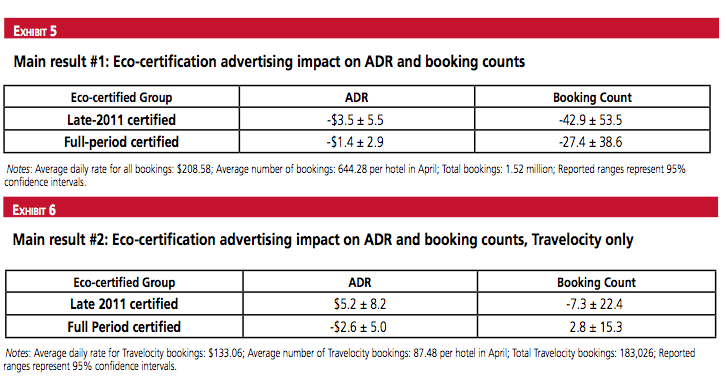Skift Take
The hotel operators worry whether going green means sacrificing their service standards at times, and this study show it surely won't hurt. And there are bigger benefits beyond bookings, including energy savings and tax credits from local municipalities, among others.
Although there is an increasing awareness and demand from many groups in and around the travel industry for hotel operators to improve their sustainability and reduce their carbon footprint, a new research paper by two professors at the Cornell University’s Center for Hospitality Research shows that booking revenues neither increased nor decreased for the green-certified hotels.
The study looked at data from Sabre’s Travelocity site, which uses an eco-friendly hotel label to flag hotels that have earned any of a dozen environmental certifications, including LEED and EnergyStar. About 5,000 hotels currently qualify as Eco-Friendly, and most searches on Travelocity will include some hotels that carry the green flag.
Based on the analysis of millions of individual bookings in over 3,000 eco-certified hotels (and a comparison group of 6,000 properties), the study finds that, on average, earning a green certification does not automatically result in a large revenue bump nor a revenue fall.
The charts above show some of the results based on the statistical models used in this study. To interpret one example number in the first table above, -$3.50 is on a base of $208.58 in average ADR. This 1.7-percent reduction is not a strong statistical signal, and within the margin of error.
Which means that the advertising of eco-certification has statistically zero impact on revenues for the hotel industry overall. According to the study, though this outcome may disappoint extreme pessimists (green-doubters) and optimists (green-lovers), “the pragmatist should see this as a green light to continue measured improvements in hotel environmental performance.”
That also means going green is compatible with existing quality standards of hotel service, and that advertising green status doesn’t really hurt a hotel’s revenues. And as the study puts it best:
The results of this study shouldn’t slow down hotels’ move towards sustainability. If the hotel industry is consistent with the broader movement of sustainable business, the first projects are cautious and target cost-cutting. Though revenues overall may not have risen, as this study has indicated, cost savings from sustainability programs are still real benefits to the bottom line. Furthermore, strategists increasingly highlight ancillary benefits of sustainability to employee engagement, the broader brand, and innovation culture.
Though there is no green “magic bullet” that supercharges revenues, sustainability’s strategic role continues to play a big part in the hotel industry.
Have a confidential tip for Skift? Get in touch
Tags: climate change, green, sabre, sustainability, travelocity

